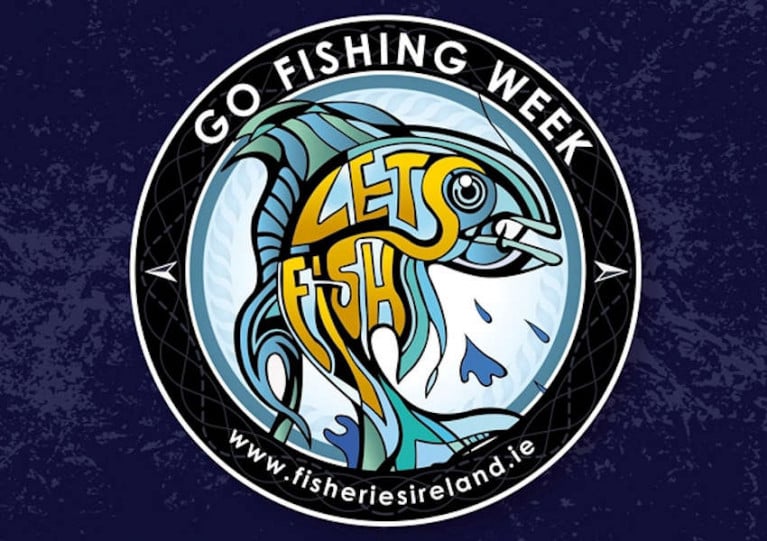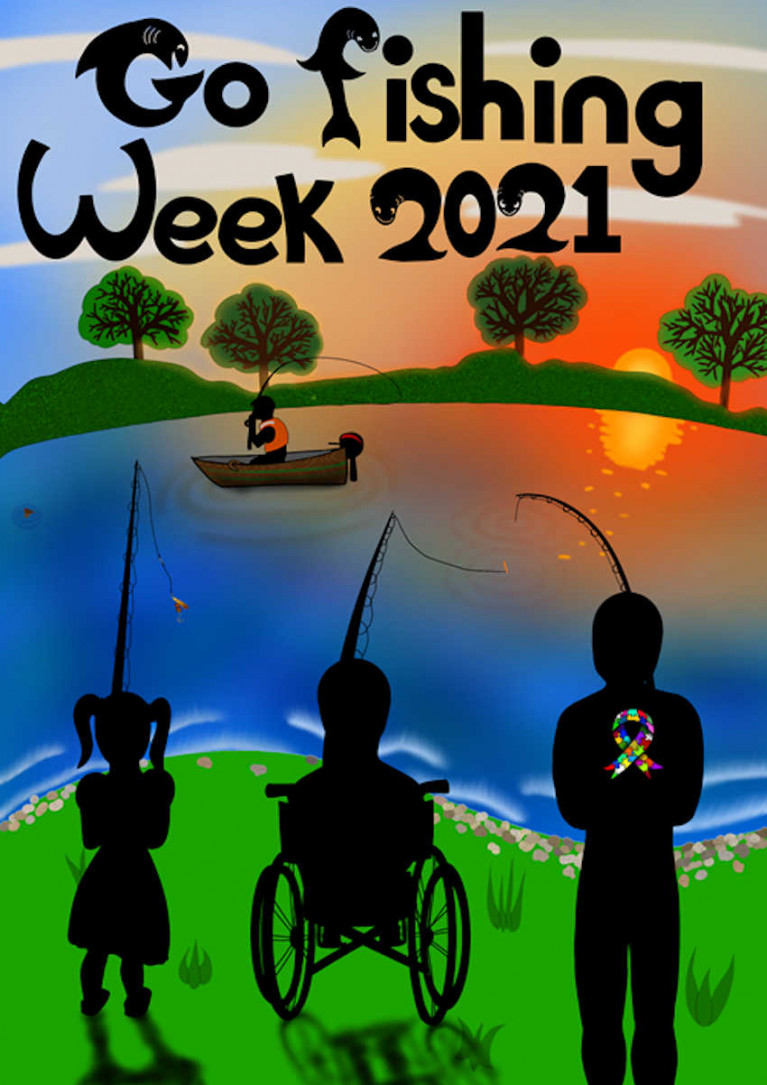Displaying items by tag: Go Fishing Week
One overall winner and five runners-up have been selected in the ‘My Favourite Fishing Place’ national photo competition that was run as part of Inland Fisheries Ireland’s Go Fishing Week 2021.
Entries were received from anglers across Ireland and the UK under the title ‘My Favourite Fishing Place’, with their photos showing where people love to fish and some of the most beautiful scenic fishing locations Ireland has to offer.
The overall winner is Michael Brazendale from England whose favourite fishing spot is Derrynane Beach, Co Kerry, represented in a breathtaking panorama. He receives €100 worth of angling tackle.
 Panorama of Derrynane Beach by overall winner Michael Brazendale
Panorama of Derrynane Beach by overall winner Michael Brazendale
Runners-up prizes are awarded to Christin Breuker, Danijel Kucan, Enda Fields, Lukasz Ryz and Maurice Neill. The entries will be shared across IFI’s social media platforms over the coming weeks.
An overall winner and 5 runners up were selected in the ‘My Favourite Fishing Place’ photo competition for IFI's #GoFishingWeek2021. Michael Brazendale won with his photo of Derrynane Beach. Runners up: Christin Breuker, Danijel Kucan, Enda Fields, Lukasz Ryz and Maurice Neill. pic.twitter.com/iVsKIAkDeN
— Inland Fisheries Ireland (@InlandFisherIE) May 25, 2021
Go Fishing Week 2021 took place from Sunday 25 April to Monday 3 May with a packed nine days of webinars, videos, social media content and competitions.
Winners Announced In ‘Go Fishing Week’ Video Competition
The winners and runners-up have been announced in a national video competition for Go Fishing Week 2021, which is taking place this week.
Entries were received across Ireland under the title ‘Why I love to fish’, and one overall winner and five-runners up were selected.
The overall winner is Michael Galvin and his son Cathal from Longford, who received €100 worth of angling tackle. Runner-up prizes, which include buoyancy aids, are awarded to Angela Byrne; Anthony Murnane; Christopher Eleker; Maud Finn and her twin boys; and Michael Heron.
Suzanne Campion of Inland Fisheries Ireland said: “We would like to congratulate all of the participants in the competition and in particular our overall winner and five runners-up.
"The videos embodied nature, a sense of wellbeing and enjoyment and displayed diverse footage of the anglers favourite fishing locations around Ireland.”
Go Fishing Week continues until next Monday 3 May and entries are still open in another competition, this time sharing a photo of a favourite fishing spot, as previously reported on Afloat.ie.
Inland Fisheries Ireland (IFI) has announced the line-up of virtual events for Go Fishing Week 2021, its national celebration of fishing and angling.
Sustainability, protecting habitats and wellbeing benefits are the big themes over a week of free events that begins this Sunday 25 April with the first of the special ‘Lunch and Learn’ webinar series.
Among those giving talks during the week is Evelyn Cusack, head of forecasting at Met Éireann, who will discuss how the weather on our inland lakes is forecast and the importance of knowing the weather for angling safety.
To view the full list of webinars and how to sign up, see the IFI website HERE.
There will also be a range of podcasts including one on the wildlife of the Garavogue River, a series of how-to videos, blogs, competitions and lots more on IFI’s social media channels on Facebook and Twitter. Followers are encouraged to use the hashtag #GoFishingWeek2021 when sharing the week’s events.
Meanwhile, IFI is asking people to submit a view of their favourite fishing spot in a photo competition to mark the occasion.
‘My Favourite Fishing Place’ is a chance to share a place where you love to fish and some of the fishing adventures you have gone on.
Entries are welcome from individuals or groups, fishing clubs, youth clubs, centres and projects until 5pm on Tuesday 4 May. The overall winner will receive fishing tackle to the value of €100 and there will also be prizes for runners-up and special categories. For more details see the IFI website HERE.
To learn more about what’s happening during the week and how you can get involved, visit the Go Fishing Week online hub HERE.
Go Fishing Week is a Virtual Celebration of Angling Next Month
For the first time ever, Inland Fisheries Ireland (IFI) launches a virtual Go Fishing Week — a national celebration of angling with a programme of online events taking place.
Running from Sunday 25 April to Monday 3 May, Go Fishing Week provides an opportunity to connect with people across the country to encourage them to try fishing by making information accessible to all.
The programme of events will spread awareness of a series of themes during the course of the week, including sustainability, protecting habitats and wellbeing benefits.
IFI chief executive Francis O’Donnell said: “This year Go Fishing Week aims to encourage people to learn more about angling while also having important conversations around sustainable fishing, climate change and the cultural significance of our inland waters here in Ireland.
“We are delighted this year to be able to bring our events into a virtual capacity and make them accessible to everyone by doing so. From webinars, podcasts and videos to virtual competitions we hope that people of all ages will get involved and join us in celebrating Go Fishing Week 2021.”
All events will be free to join but registration may be required. Some of those scheduled for the week include:
- Specimen Fish: Join the Irish Specimen Fish Committee in a webinar to learn all about specimen fish and the records of Irish specimen fish. The webinar will take place on Sunday 25 April.
- Free a Flounder: Watch a video to show you how to safely remove a hook from a flounder and release it back into the water.
- Safety on the Water: Join a webinar on all things around how to be safe around water especially as we come into the peak angling season and raise awareness of safety among all new anglers.
As part of the event, IFI is also running a video competition. ‘Why I Love to Fish’ is an initiative to get more people to spread the word about fishing by sharing a short video clip of their angling adventures online and telling the world what angling means to them.
To learn more about what is happening and how you can get involved, visit the IFI website and catch up with social media updates in the run-up to the week on Facebook and Twitter.






























































